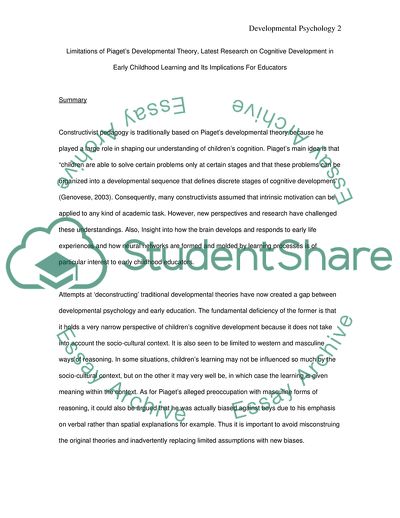Cite this document
(Cognitive Development in Early Childhood Learning Coursework Example | Topics and Well Written Essays - 1750 words - 1, n.d.)
Cognitive Development in Early Childhood Learning Coursework Example | Topics and Well Written Essays - 1750 words - 1. https://studentshare.org/psychology/1720978-developmental-psychology
Cognitive Development in Early Childhood Learning Coursework Example | Topics and Well Written Essays - 1750 words - 1. https://studentshare.org/psychology/1720978-developmental-psychology
(Cognitive Development in Early Childhood Learning Coursework Example | Topics and Well Written Essays - 1750 Words - 1)
Cognitive Development in Early Childhood Learning Coursework Example | Topics and Well Written Essays - 1750 Words - 1. https://studentshare.org/psychology/1720978-developmental-psychology.
Cognitive Development in Early Childhood Learning Coursework Example | Topics and Well Written Essays - 1750 Words - 1. https://studentshare.org/psychology/1720978-developmental-psychology.
“Cognitive Development in Early Childhood Learning Coursework Example | Topics and Well Written Essays - 1750 Words - 1”. https://studentshare.org/psychology/1720978-developmental-psychology.


